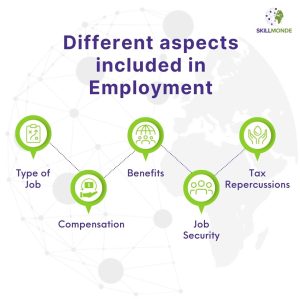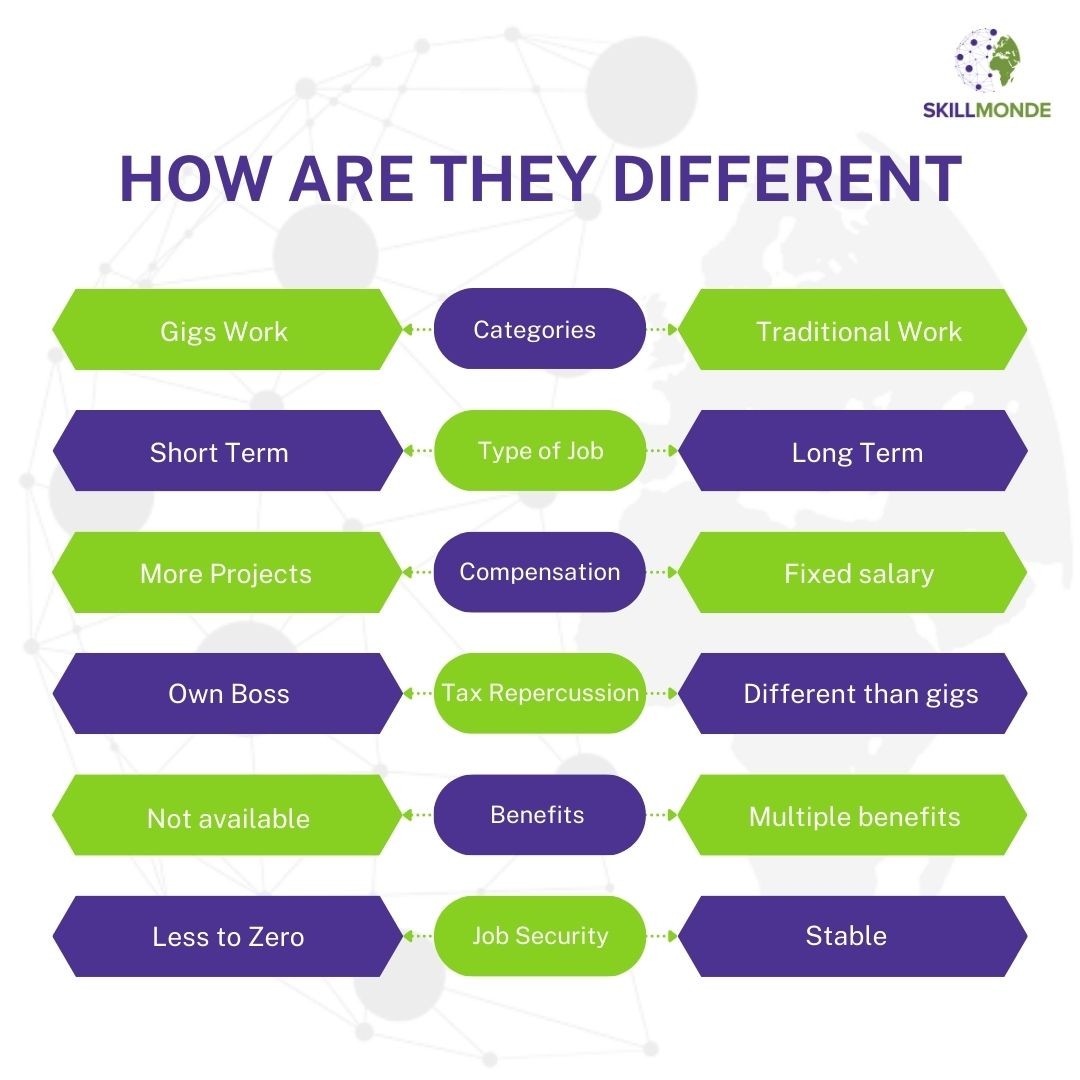A gig job is different because a regular job is a type of employment where a person is hired by a company or organisation to work on a regular basis, typically for a set number of hours per week. Long-term commitment is often required for jobs, and certain positions offer benefits like health insurance, paid time off, and retirement plans.
Contrarily, a gig describes a brief or one-time assignment or task for which a worker is hired. Instead of a full-time commitment, gigs are often more flexible and may require working on a project for a few hours or days. Gigs can also be described as contract work or freelancing.
Instead of having full-time employment with a single employer, freelancers or self-employed people sometimes work on a gig basis, taking on different assignments as they become available.
Jobs can be found in a range of professions, from more creative ones like event planning and house repair to more practical ones like writing, design, and photography. While some gig workers may specialise in a certain field and work with a select few frequent clients, others may work on a variety of tasks for various clients.
The difference between full-time employment and gig labour, however, is not often obvious, and many people may have a combination of both sorts of work. A worker might, for instance, work a full-time job and do freelance or gig work on the side, or they might operate largely as freelancers but have a few long-term clients they work with frequently.
Gig work may provide more flexibility and the chance to work on a range of different projects, but full-time employment typically provides more stability and benefits, such as healthcare and retirement plans. The decision between full-time work and freelance work will rely on a person's priorities and situation.
Different aspects (gig and job) included in employment:

Traditional jobs and gig work differ in a few significant ways:
1. Type of job: Short-term, project-based tasks are often what define gig work. This can involve performing work as a freelancer, an independent contractor, or a driver for a ride-hailing service. Contrarily, traditional employment tends to be full- or part-time positions that require a more constant and long-term commitment to a specific business.
2. Compensation: Instead of a set salary or hourly wage, gig work is frequently compensated on a per-project or per-task basis. This implies that the revenue of gig workers may vary substantially from one month to the next. On the other hand, traditional occupations often pay an hourly wage or a set salary.
3. Benefits: In general, gig workers are not entitled to the same advantages as permanent workers, such as insurance coverage, retirement funds, and overtime pay.
4. Job security: Gig workers do not always have the same amount of job security as traditional employees do, and there may not always be a minimum number of projects or hours promised. As a result, gig labour is typically seen as being less stable than traditional employment.
5. Tax repercussions: Because gig workers typically pay their own taxes rather than having them withheld by an employer, gig labour may have different tax repercussions than traditional employment.
The nature of the work, salary, perks, job security, and tax implications are all different between gig work and typical employment.
FAQs on difference between gig and job
1. What distinguishes a gig from a job in the most fundamental way?
A: The nature of the work arrangement is the primary distinction between a gig and a job. Jobs are more long-term, organised, and involve a set schedule and perks, whereas gigs are often short-term, flexible, and project-based.
2. What is a job?
A job is a more conventional employment situation in which a person regularly works for an employer in exchange for a regular salary or earnings. In most cases, jobs have a defined schedule and offer perks like healthcare, retirement plans, and paid time off.
3. Can a gig turn into a job?
A gig may become a job if the client is pleased with the freelancer's work and chooses to hire them on a more permanent basis. Instead, a freelancer may decide to pursue a position with an employer once they have developed their expertise and skills through gigs.
4. Are gigs more or less stable than jobs?
A: Gigs are typically thought of as being less stable than jobs because they are frequently project-based and short-term, with no assurance of ongoing employment. Jobs, on the other hand, provide greater stability in the form of consistent employment, benefits, and chances for career advancement.
5. Is a gig or a job superior to the other?
A person's personal tastes and professional objectives determine whether they should choose a gig or a job, therefore neither is fundamentally superior to the other. While some people would favour the versatility and variety of occupations, others might favour the advantages and security of a typical career.
